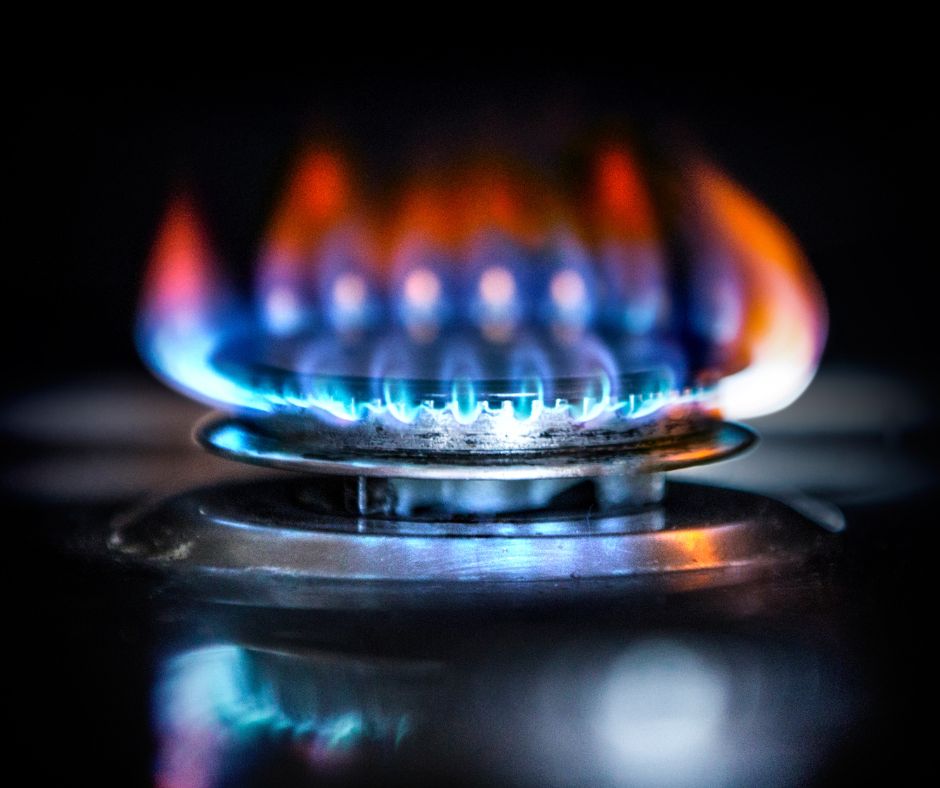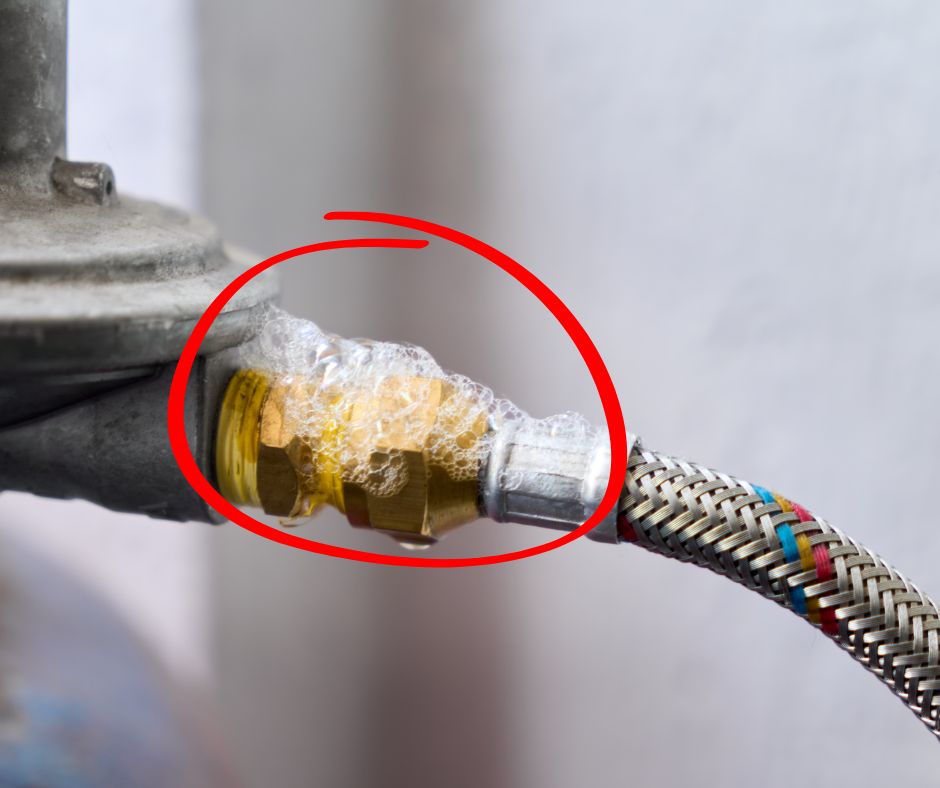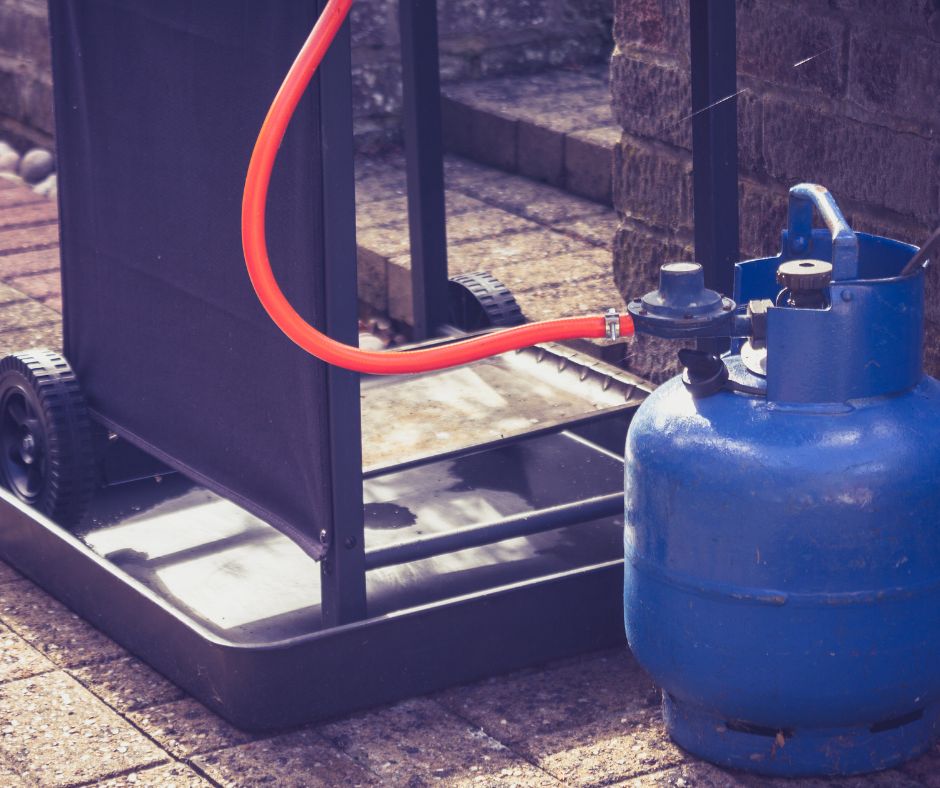Essential Steps to Identify Gas Leak Indicators in Your Home for Enhanced Safety
It’s crucial to identify the key signs of a gas leak to protect yourself and those around you. A strong odor similar to rotten eggs, unusual hissing or whistling sounds near your gas appliances or pipes, yellow or orange flames instead of the standard blue, and persistent headaches or dizziness are all serious red flags that should not be ignored. Additionally, keep an eye out for any dead plants near outdoor gas lines, which could indicate a significant leak. If you observe any of these alarming signs in your Wollongong residence, it’s vital to promptly shut off your gas supply at the meter, open windows for ventilation, and immediately contact a qualified gasfitter for urgent assistance.

Determining When to Call a Gasfitter for Emergency Situations
Encountering a gas leak is a grave situation that requires immediate action; procrastination can lead to dire consequences. A single spark can transform your home from a safe space into a perilous environment. Gas leaks may originate from various sources, such as faulty connections, aging appliances, or even corrosion in underground gas lines. Quick detection and prompt action are paramount to prevent injuries, property damage, or worse. Homes in Wollongong, particularly those utilizing older gas heating systems or those lacking proper ventilation, face heightened risks if their gas systems are not regularly maintained. This comprehensive guide will equip you with the insights necessary to recognize a gas leak, the immediate actions to take, and the critical moments when you should call a licensed gasfitter for urgent repairs.
Spotting the Key Warning Signs of a Gas Leak in Your Home
1. Detecting the Recognizable Smell of Rotten Eggs
While natural gas is naturally odorless, suppliers intentionally add a compound called mercaptan, which produces a strong, sulfur-like odor to aid in leak detection. If you suddenly notice a distinct smell reminiscent of rotten eggs, it’s imperative to take this warning seriously. This unmistakable scent serves as an immediate signal that gas may be leaking in your home, demanding swift action to safeguard everyone’s well-being. Ignoring this warning could lead to dangerous situations, so it’s crucial to act quickly and responsibly.
2. Listening for Hissing or Whistling Sounds Near Gas Appliances
A common indication of a gas leak is the sound of gas escaping under pressure from a pipe or hose, which often creates a soft but noticeable hissing noise. If you hear such sounds near your gas appliances or in the vicinity of gas pipelines, it may signify a leak. Always remain vigilant and investigate any unusual noises, as they could represent a significant safety concern that necessitates immediate professional evaluation to ensure the safety of your household.
3. Observing Flames with Unusual Colors in Your Gas Appliances
Gas stoves and heaters are designed to burn with a clean, bright blue flame. If you notice that the flames are yellow or orange, or if they flicker erratically, this may indicate incomplete combustion, potentially caused by gas leaks or blockages within the system. Observing such discolored flames is a crucial warning sign that something is amiss with your gas appliances, and it requires immediate investigation to prevent further complications and ensure your safety.
4. Experiencing Unexplained Physical Symptoms Among Family Members
If you or your household members frequently suffer from headaches, dizziness, nausea, or fatigue while indoors, these physical symptoms could be indicative of gas exposure or carbon monoxide buildup in an enclosed space. Such reactions are serious and should not be dismissed lightly. It is vital to recognize these symptoms and take the necessary precautions, as they may signal a hazardous situation that requires urgent intervention from a licensed gasfitter to ensure your home’s safety.
5. Noticing Wilting Houseplants or Dying Outdoor Vegetation
Gas leaks that occur near outdoor gas lines or under slab connections can lead to the gradual decline of nearby plants and vegetation. This occurs because the leaked gas displaces oxygen in the soil, making it challenging for plants to survive. If you observe wilting or dying houseplants or outdoor flora in proximity to these areas, it may indicate a gas leak that requires immediate evaluation by a qualified professional to assess and rectify the situation promptly.

Essential Steps to Follow If You Suspect a Gas Leak
1. Immediately Shut Off the Gas Supply
First, locate your gas meter and turn the valve clockwise to shut off the gas supply to your home. This valve is typically situated on an exterior wall, either at the front or side of the house. Prompt action at this stage is vital for ensuring safety and preventing potential hazards.
2. Avoid Using Any Electrical Devices
Refrain from turning on lights, appliances, or any electrical outlets. Even the slightest spark from an electronic device can ignite leaked gas, leading to potentially disastrous outcomes. It is essential to maintain a safe distance from any electrical sources until the situation has been thoroughly assessed by professionals.
3. Open All Windows and Doors for Adequate Ventilation
Ensuring proper airflow is critical for mitigating the dangers associated with gas accumulation. Open all windows and doors to facilitate fresh air circulation; creating cross-breezes is particularly effective in dissipating any accumulated gas. This step is essential for reducing the concentration of gas in the air and enhancing overall safety.
4. Avoid Attempting Repairs on Your Own
Only licensed gasfitters are legally authorized to repair or reconnect gas systems in NSW. Any attempt to tamper with the system can introduce additional risks and may even void your insurance policies. It is crucial to leave repairs to qualified professionals who possess the necessary expertise and training to ensure the safety of your home.
5. Contact a Licensed Gasfitter Without Delay
If you suspect a gas leak, immediately reach out to a licensed gasfitter for emergency response services in Wollongong and the surrounding areas. You can contact CS Plumbing’s licensed gas services or our 24/7 emergency plumbing team for prompt and professional assistance to address the situation effectively.
Understanding Compliance with NSW Gas Safety Regulations for Your Home
In New South Wales, all gasfitting work must adhere to the Gas and Electricity (Consumer Safety) Act 2017, which ensures that the highest safety standards are maintained. All gas-related work must be performed by a licensed gasfitter to comply with these critical regulations, protecting both homeowners and the community.
After any regulated work is completed, it is advisable to request a Certificate of Compliance to confirm that all safety standards have been adhered to. As a homeowner in Wollongong, you are legally responsible for ensuring that your gas appliances and installations are managed and repaired exclusively by licensed professionals to maintain safety and compliance.
Proactive Measures to Prevent Future Gas Leaks in Your Home
- Schedule annual gas safety inspections, particularly prior to the winter heating season.
- Replace old flexible gas hoses and bayonet fittings that appear cracked or brittle to prevent potential leaks.
- Ensure vents and exhausts are free from obstructions to guarantee proper airflow.
- Regularly check for corrosion on outdoor connections, especially after heavy rainfall or exposure to coastal environments.
- Utilize only trusted and certified gas appliances to ensure optimal safety and efficiency in your household.

The Article: Detect and Respond to a Gas Leak in Your Wollongong Home first appeared on https://writebuff.com
The Article Gas Leak Detection and Response for Your Wollongong Home Was Found On https://limitsofstrategy.com

